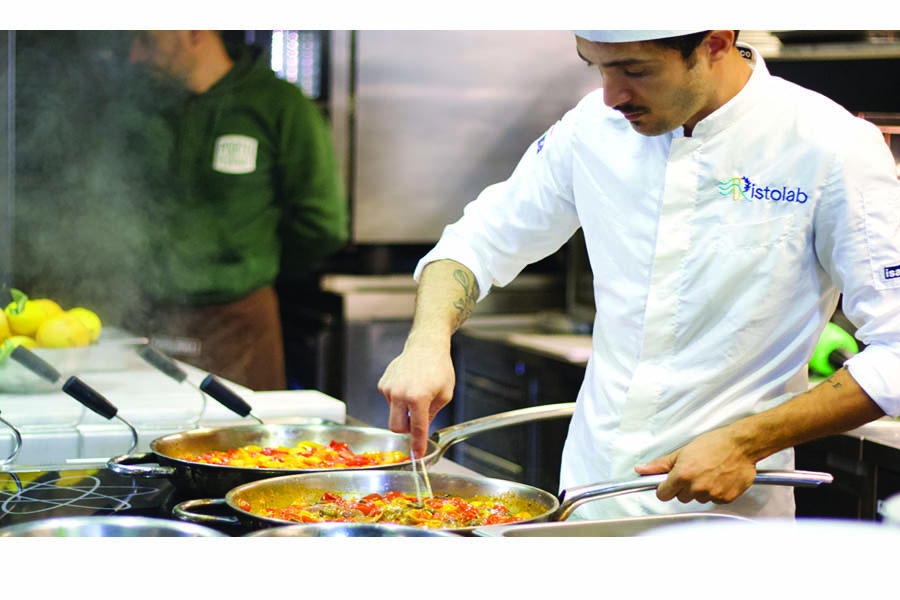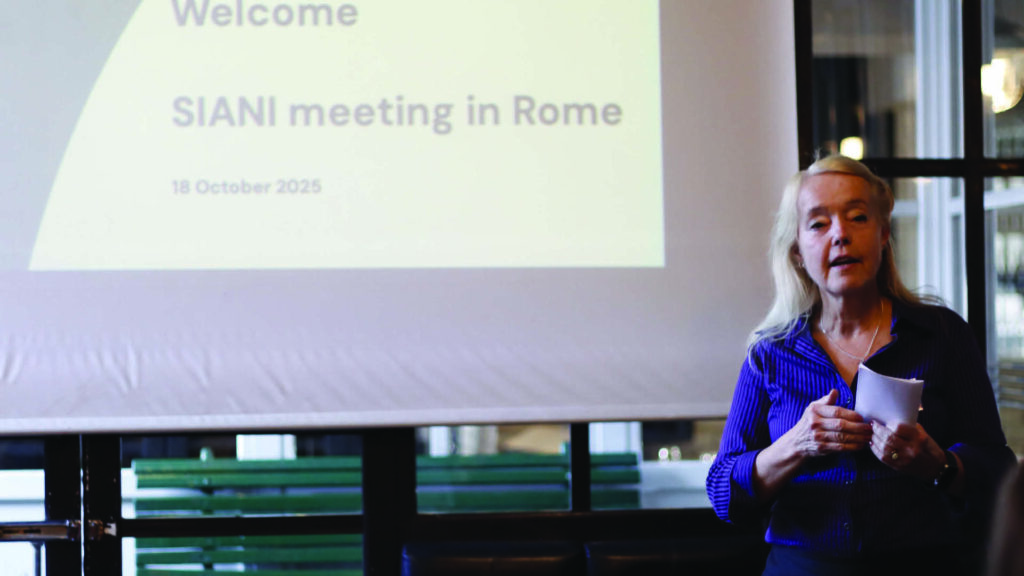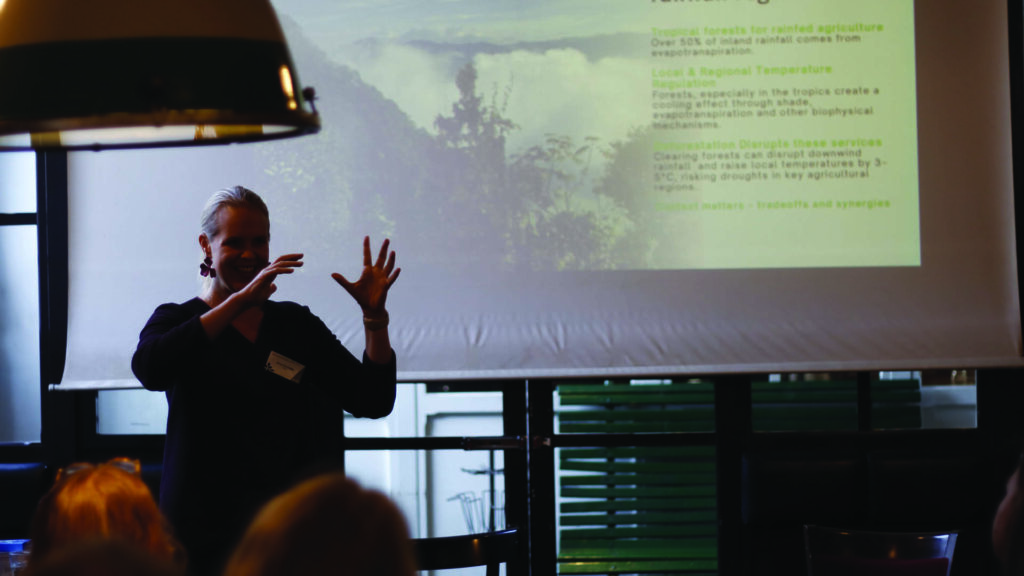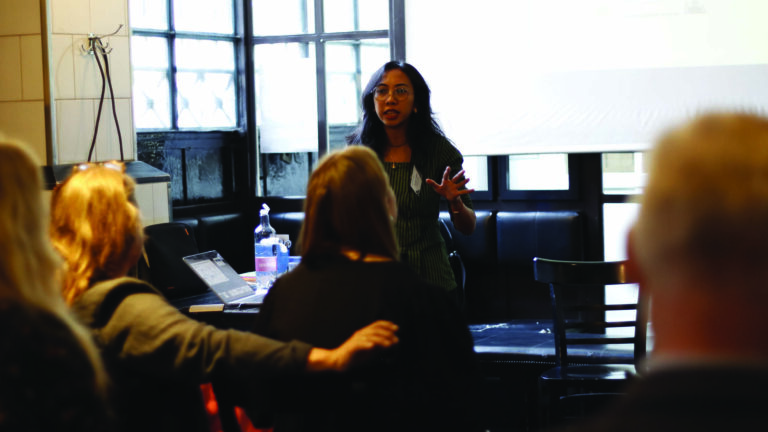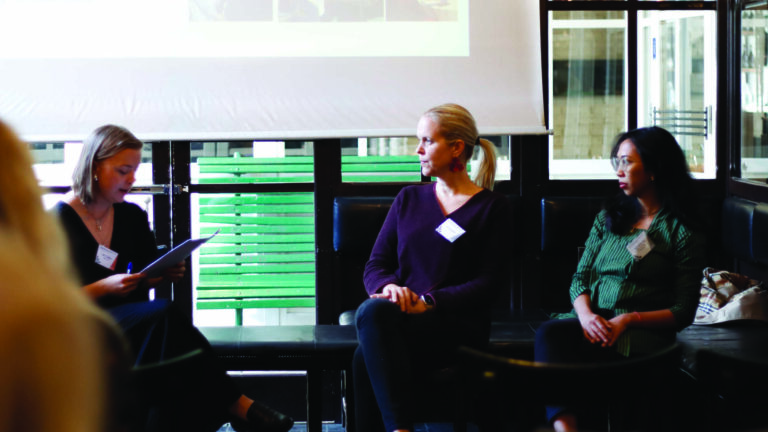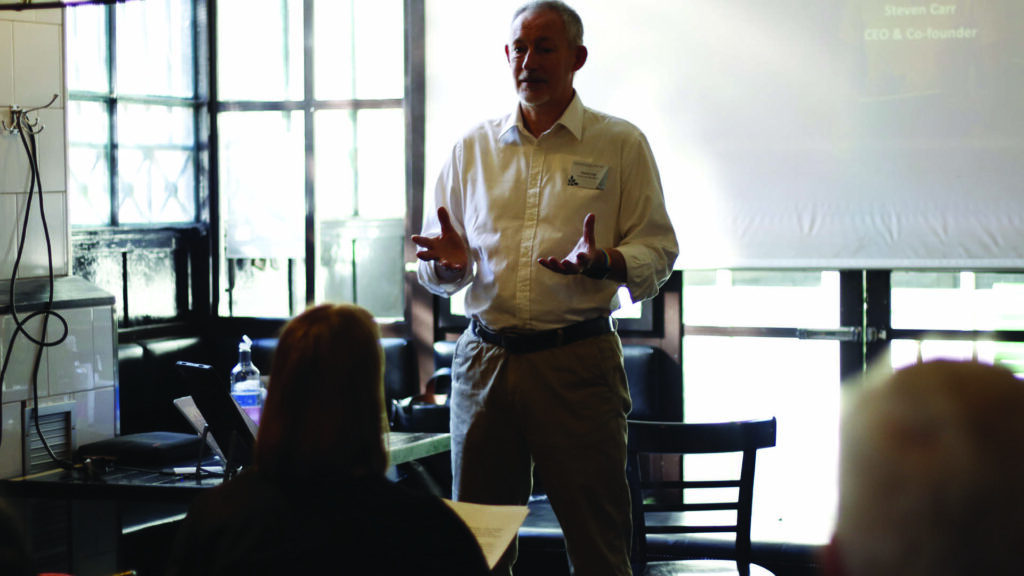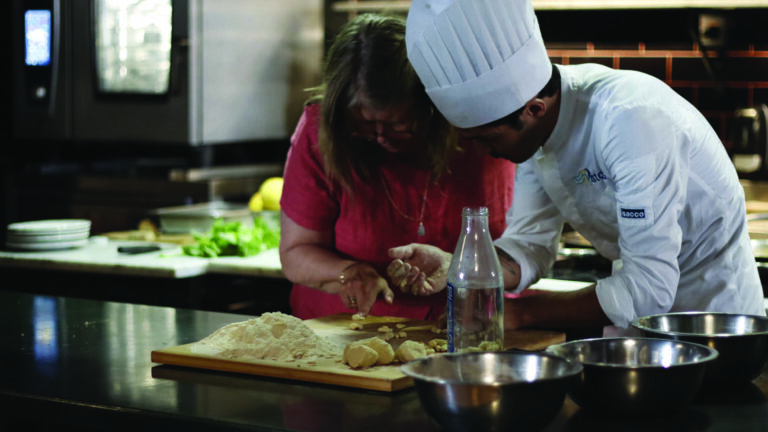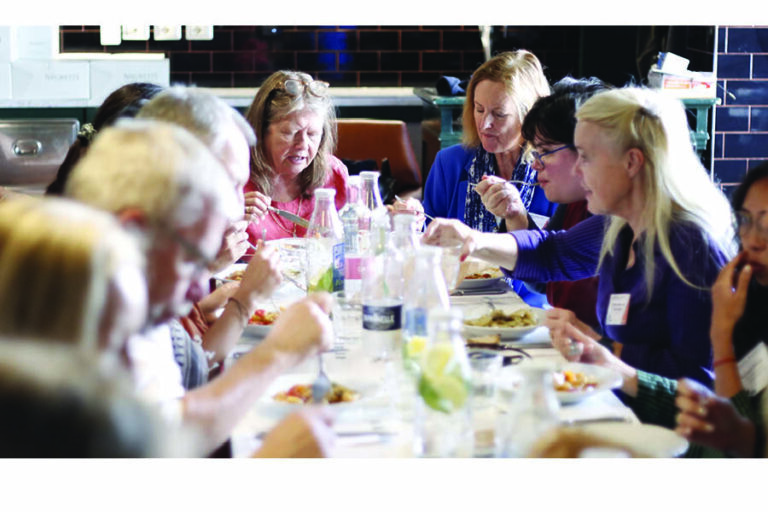After an intense week at the World Food Forum and just before the start of the Committee on World Food Security (CFS 53), SIANI hosted a regional network meeting in Rome. The event took place in a cosy restaurant in the Ostiense neighbourhood, where guests were welcomed in the morning with freshly brewed Italian coffee, setting a relaxed and friendly tone for the day.
SIANI Chair Cecilia Nordin Van Gansberghe opened the meeting by underlining the value of networks and dialogue across sectors to drive food systems transformation, a theme that would resonate throughout the day.
